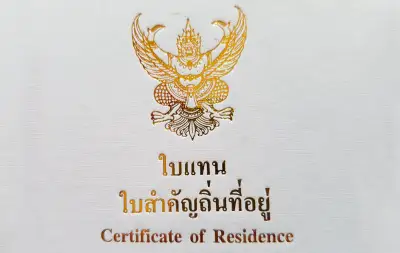The Thailand Permanent Residency Visa is an attractive option for long-term residents who wish to reside in Thailand without frequent visa renewals. This status, managed by the Thai Immigration Bureau, allows holders to enjoy indefinite residency, access local services, and provides a pathway toward Thai citizenship after holding PR for a decade. The visa, which opens annually for applications, has strict eligibility criteria based on investment, employment, expertise, family relationships, or humanitarian reasons.
1. Eligibility Criteria for Thailand Permanent Residency
Applicants must apply under one of the qualifying categories, each with unique requirements:
- Investment: Requires a minimum investment of THB 10 million in Thai government bonds, real estate, or a Thai company.
- Employment: For foreign professionals who have held consecutive employment in Thailand for at least three years with a minimum monthly salary of THB 80,000.
- Expertise: Designed for those with specialized skills beneficial to Thailand’s economic goals, such as technology or healthcare.
- Family Ties: Available to spouses, parents, or dependents of Thai citizens or Permanent Residents, requiring proof of legitimate familial relationships.
- Humanitarian Grounds: Applies to those supporting Thai nationals in specific dependency scenarios.
Each applicant must also demonstrate financial stability, good health, and a clear criminal record from both Thai and home country authorities.
2. Application Process for Thailand Permanent Residency
The application process for the PR Visa includes multiple steps and can be time-consuming, as applicants must provide a range of personal, financial, and professional documentation:
a) Document Preparation
- Personal Documents: Include passport copies, work permits, visa details, tax records, and proof of financial stability.
- Eligibility-Specific Documents: For example, marriage certificates for family ties or investment documentation for the investment category.
- Health and Background Checks: A police clearance certificate and medical certificate from a Thai hospital proving the applicant is free from communicable diseases.
b) Submission and Processing
Applications are submitted to the Thai Immigration Bureau during the open application period, typically in December. The PR Visa application fee is THB 7,600, and if approved, an additional fee of THB 191,400 applies (or THB 95,700 for applicants with Thai spouses).
c) Interview Process
Applicants must demonstrate basic conversational skills in Thai during a short interview conducted by immigration officials, assessing language proficiency and integration level.
The full review process can take six months to a year, involving checks with relevant ministries and immigration departments.
3. Benefits of Permanent Residency in Thailand
Thailand Permanent Residency status provides several advantages:
- Indefinite Residency: PR holders can reside indefinitely in Thailand without renewing a visa.
- Exemption from 90-Day Reporting: PR holders are required to complete only annual reporting of residence instead of every 90 days.
- Home and Property Ownership: While foreigners cannot own land, PR holders can own condominium units freehold and co-own property with Thai nationals.
- Work Permit Access: PR holders can more easily obtain a work permit, allowing them to work in various sectors.
- Pathway to Citizenship: After 10 years with PR status, individuals may apply for Thai citizenship, subject to additional requirements.
4. Ongoing Compliance for Permanent Residents
To maintain PR status, holders must fulfill specific requirements:
- Annual Reporting: PR holders are required to complete an annual residence report with the local immigration office.
- Re-Entry Permits: PR holders planning extended travel outside Thailand must obtain re-entry permits to prevent the loss of PR status upon reentry.
- Property Regulations: While they enjoy broader property rights, PR holders remain subject to general land ownership restrictions applicable to foreigners.
Failure to comply with these requirements can lead to loss of PR status, so regular updates with the Thai Immigration Bureau are essential.
5. Challenges and Considerations
While Thailand Permanent Residency offers significant benefits, there are some challenges:
- Quota Limitations: Only a limited number of PR visas are issued each year, with quotas determined by nationality.
- Strict Application Process: The documentation and interview requirements are rigorous, and applicants must meet financial and residency prerequisites to be considered.
- Tax Residency: Achieving PR status may trigger additional tax obligations, so applicants should consult a tax advisor if they hold assets or generate income outside of Thailand.
Conclusion
Thailand’s Permanent Residency Visa provides a practical, stable, and advantageous option for long-term residents, business owners, and those with family in Thailand. By offering indefinite residency, work opportunities, and pathways to citizenship, PR status enables foreigners to deepen their ties to Thailand while enjoying long-term security. Understanding the eligibility requirements, documentation needs, and compliance obligations helps applicants navigate the application process successfully. Consulting with local legal and tax advisors can further streamline the journey toward gaining Thailand Permanent Residency status.

